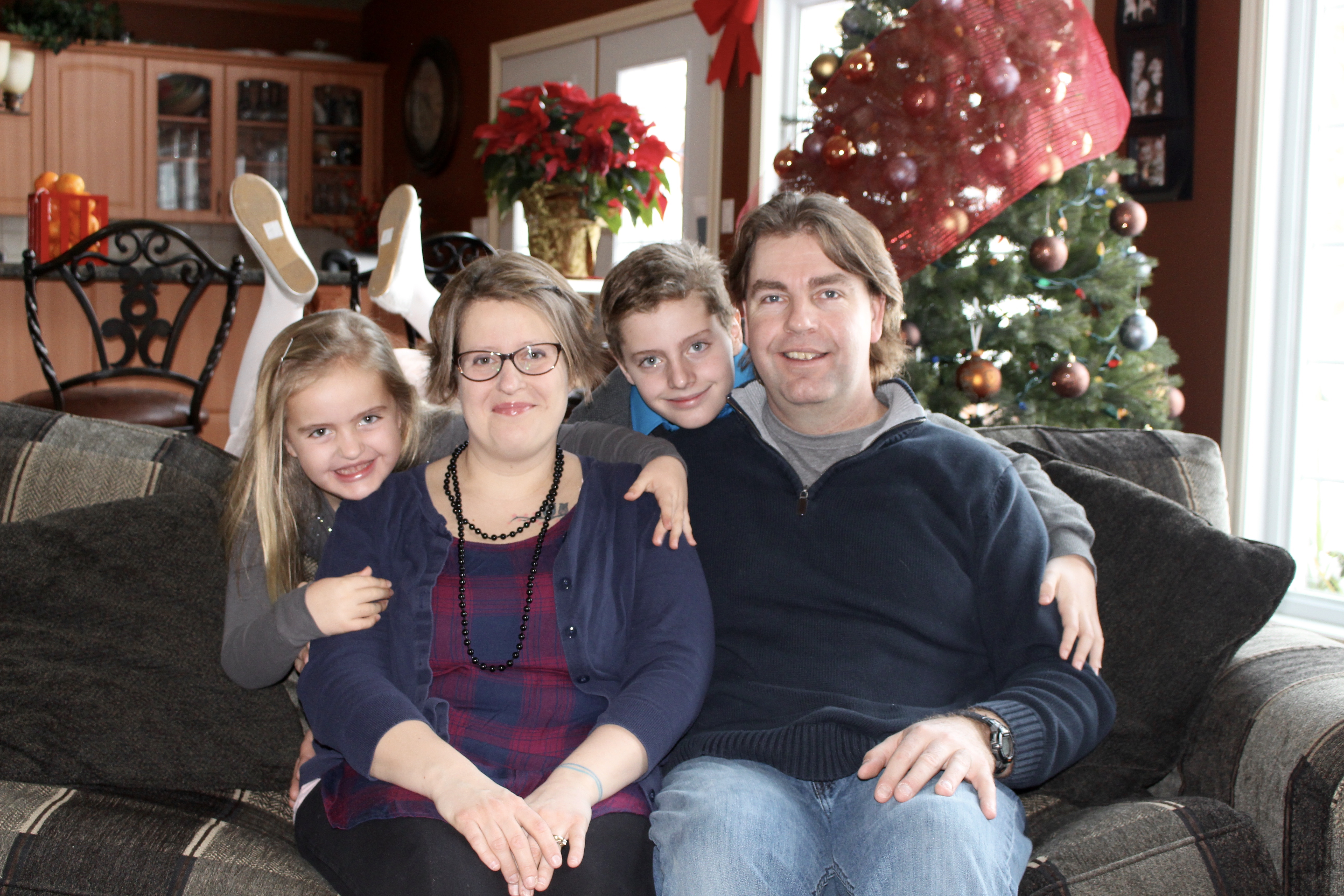 In 2014, Krista Dumas of Kirkland Lake, Ontario, was shocked to receive a diagnosis of metastatic breast cancer at the age of 33. The cancer was in her liver and L5 vertebrae.
In 2014, Krista Dumas of Kirkland Lake, Ontario, was shocked to receive a diagnosis of metastatic breast cancer at the age of 33. The cancer was in her liver and L5 vertebrae.
Krista's treatment has included: chemotherapy (paclitaxel) for five months, Pamidronate for two years to strengthen her bones, anti-HER2 therapy (Herceptin and Perjeta) every three weeks from the start, and beginning in September 2014, tamoxifen, which is a hormonal therapy.
Like most breast cancer patients, Krista has experienced a number of side effects as a result of her treatments. Krista experiences varying levels of fatigue. She talks about relatively minimal side effects resulting from chemotherapy including hair loss, abnormalities in her fingernails, extreme fatigue, diarrhea, loss of appetite, and nausea towards the end, but these were all manageable for her. A common side effect, and most significant for Krista, has been early menopause, which comes with many physical changes including a slower metabolism, mood swings, insomnia, hot flashes, dry skin, and risks to bone health.
But treatments and side effects weren’t the most difficult part of the illness for Krista. The hardest part was “trying to navigate being a parent of young children.”
Her daughter was age 3 and her son was 8 when she was diagnosed. She struggled with not wanting to mislead them about her prognosis while not wanting to scare them with too many details which could cause them a lot of anxiety about things that might not happen for a long time. “It’s a balancing act,” she says.
Her solution was to follow the suggestion of the cancer centre social worker and focus on the present, telling the children what they need to know in the moment. For example, her children were aware of her need for chemotherapy; they know about her ongoing anti-HER2 therapies, and they know that she has regular checkups with her oncologist and that those checkups often include blood work and scans. They also understand that Krista sometimes needs to rest more often than she did before.
Over time, as the children continue to grow and as the family continues to live with the consequences of Krista's illness, the children's understanding of it continues to evolve. It has been very important to keep lines of communication open with the children, and the family has benefited from children's mental health services when necessary to help navigate the situation.
As expected, Krista's husband has struggled with her diagnosis. For a period of time, he was somewhat in denial about her prognosis, the consequences of her treatment, and as a result, it wasn't always easy for him to understand her new limitations. The solution has been “complete and utter honesty” between them. “Our marriage is definitely stronger now than pre-diagnosis,” says Krista, but that strength did not come easily or without an unimaginable amount of commitment to finding the best ways to support each other.
The family feels blessed to live in a small, tight-knit community. Many people—friends, family, even mere acquaintances —offered to drop off meals or help with babysitting. “It’s just so overwhelming. It lightens the load,” says Krista.
Krista wonders about whether she would have developed metastatic breast cancer if her cancer had been diagnosed earlier. “There’s so much hype about early detection that it causes guilt for women who were first diagnosed with metastatic breast cancer,” she says.
“There’s more awareness of metastatic breast cancer coming but it’s slow,” she says.
She notes mixed emotions about “pink ribbon campaigns” as they have traditionally failed to raise awareness of metastatic breast cancer, and she feels there have been misleading promises of a cure on the basis of early screening. “There’s more awareness of metastatic breast cancer coming but it’s slow,” she says.
Regular mental health counselling and medication help Krista manage her anxiety. She has also discovered her creative side through new hobbies such as quilting and crocheting, which she calls therapeutic. “I needed something that was for me. It makes me feel like I’ve taken some control.”
For Krista, living with metastatic breast cancer is a “rollercoaster” of emotions. “I’ve been incredibly lucky, and I continue to do well. I live a fairly normal life, but that could change quickly. There’s always the possibility that my treatment will fail and the next one won’t work.
“Metastatic breast cancer changes who you are. It changes your perspective on everything. It changes your life.”






